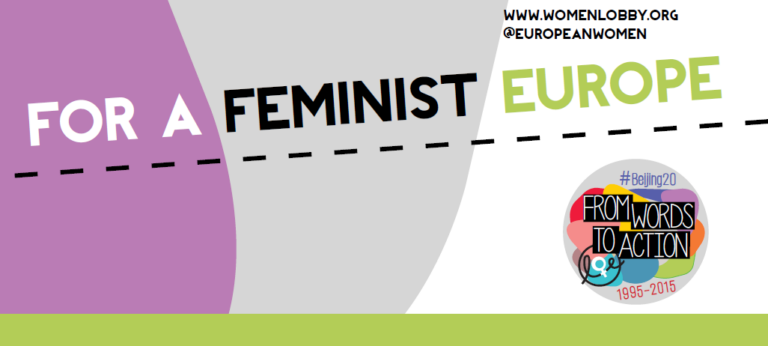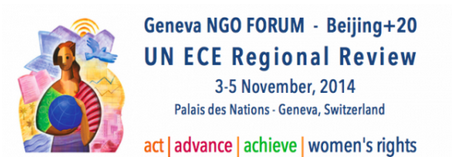Brussels, 06 March 2013] The EWL express its views on some of the issues discussed during the negotiations of the [CSW draft agreed conclusions on violence against women and calls to reaffirm international commitments on women’s rights.
- The EWL asks all Member States to strongly reaffirm their commitment to all existing international and regional instruments (including documents related to the Beijing process, the ICPD programme of action, CEDAW and its protocol, Conventions on the rights of the child and on the rights of persons with disabilities, Convention for the Suppression of the Traffic in Persons and of the Exploitation of the Prostitution of Others).
- The EWL strongly supports original para 7 and p of the zero draft and amendment p alt concerning stopping invoking any custom, tradition or religious considerations and urges Member States to ensure a consistent protection of women’s human rights throughout the world. In this respect, proposed para 7 ter is in complete contradiction of the goal of CSW. The EWL also stresses that “child marriage”, “early marriage” as well as “forced marriage” should be included in the conclusions.
- The EWL stresses that the full integration of women and girls’ multiple identities through a intersectional perspective including factors such as race, ethnicity, religion or belief, health, civil status, housing, migration status, age, disability, class, sexual orientation and gender identity, is a crucial condition for addressing the multiple forms of discrimination and violence that many women face. We support amendment 3 quat. and original para gg of zero draft.
- The EWL welcomes the acknowledgment of prostitution as a form of violence against women. However, language should be based on the UN 1949 Convention, stating that “Prostitution and the accompanying evil of the traffic in persons for the purpose of prostitution are incompatible with the dignity and worth of the human person”. Therefore, the use of terminology such as ‘sex work’ or ‘forced prostitution’ is not consistent with UN language. We stress that prostitution is one of the most archaic manifestation of the unequal power relation between women and men and therefore, measures must be taken to protect all women and girls in prostitution and address the demand for prostitution and trafficking.
- Women’s sexual and reproductive health and rights: the EWL urges Member States to fully include the concept of “women’s sexual and reproductive rights”, in conformity with agreed language. The violation of women’s sexual and reproductive rights is a form of violence against women and sexuality education for girls and boys is key to ensure equality between women and men. We support original para n (including amendments from Australia) dd and o, amendment n bis, new para aa, amendment 9 quat., amendment w alt) as well as amendment eebis).
- The EWL support the use of the term “intimate partner violence” as well as “domestic violence” so as to ensure the protection of all women abused in a relationship notwithstanding the civil status of the relationship. The EWL also recalls that UN agreed language is “violations” of women’s human rights and not “abuses” of human rights.



